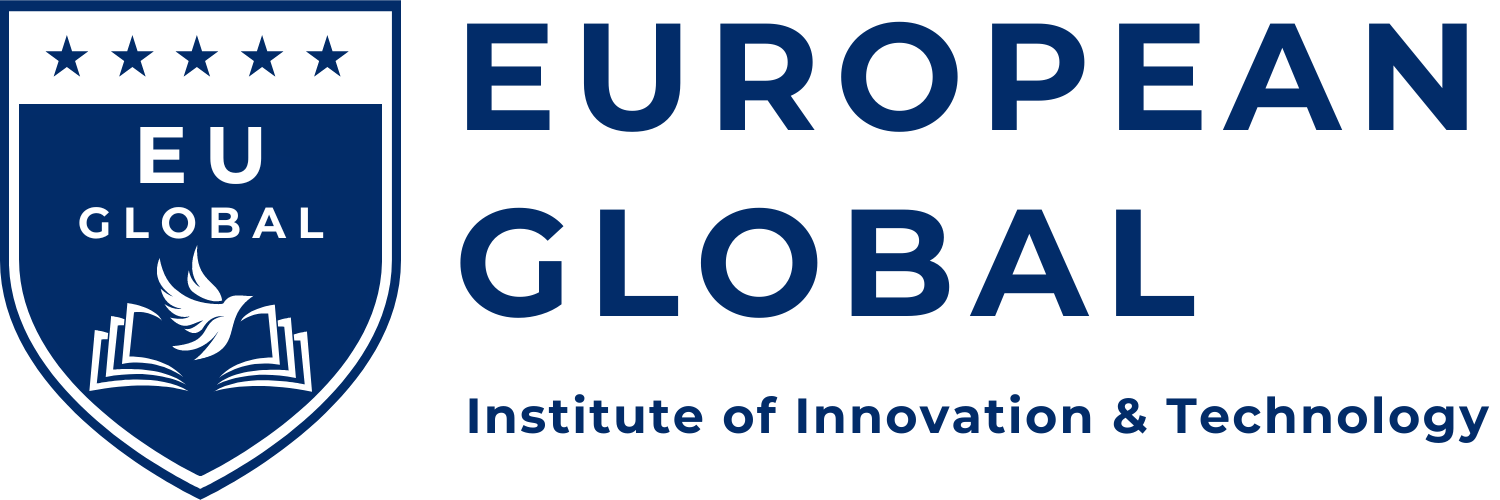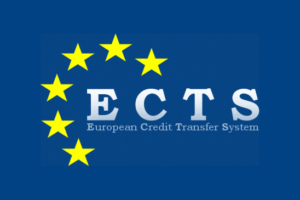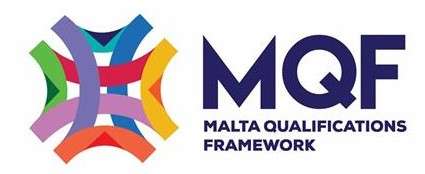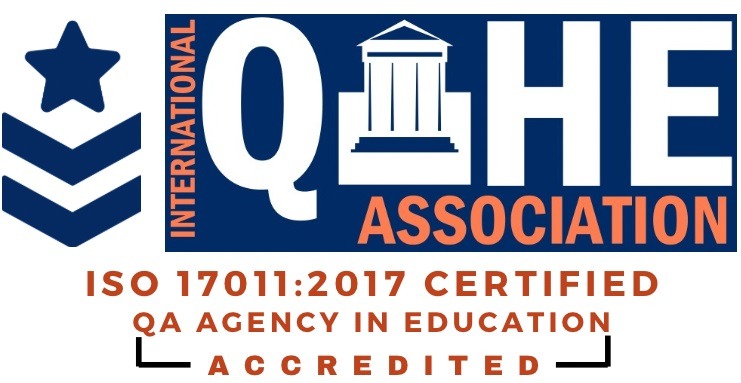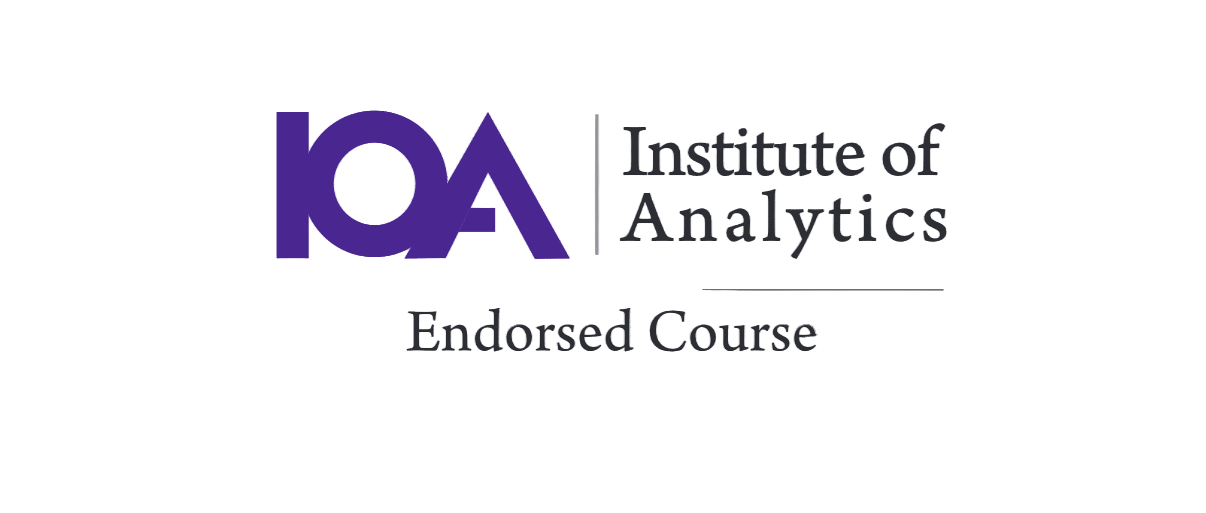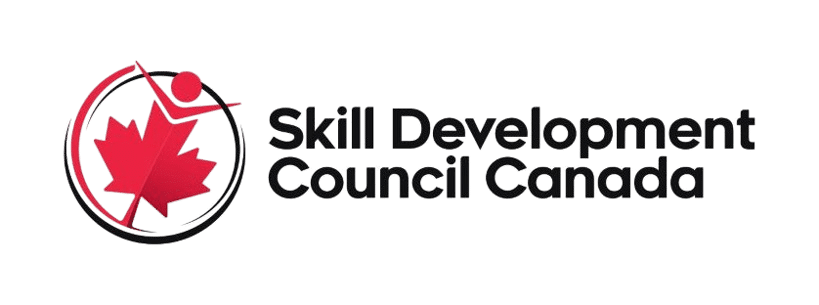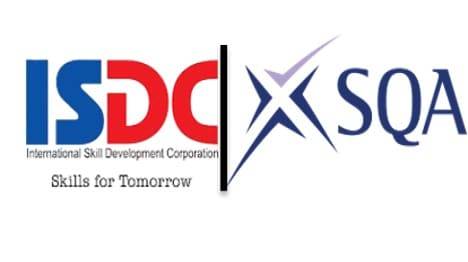Early Bird scholarship up to 30%
⚠ Alert: November 2025 intake closed. April 2026 intake opens
MBA in Environment, Energy and Sustainability Management
Learning Formula
Blended (Live Online)
Intakes
April/October
Language
English
MBA in Environment, Energy and Sustainability Management
Program Details
- Overview
- Why Choose Us?
- Tuition Fees & Program Structure
- Program Awarding Institutions and Title
- Program Completion
- Learning Method
- Benefits
- Learning Outcomes
- Engaging Program Content
- We Support Learning
- Eligibility and Application Process
- Career Paths
- Sample Certificate
- Faculty
Docenti Global Business School partners with European Global Institute of Innovation and Technology to offer the Master of Business Administration (MBA) in Operations And Supply Chain Management with a 90 ECTS, European Qualifications Framework (EQF) full-degree Level 7 programme.
This programme is fully accredited by Council for Higher Education Development, USA. EU Global MBA in Operations and Supply Chain Management is increasingly relevant as global supply chains become more complex and integral to business success.
This MBA program equips graduates with expertise in process optimization, demand forecasting, and strategic sourcing, enabling them to reduce costs, improve efficiency, and adapt to ever-changing market conditions—skills essential for driving operational excellence in today’s competitive business environment. EU Global follows a few unique concepts for teaching its MBA students.
These are:
●Evidence-based Management.
●Reflective writing.
●Research and Academic Coaching.
●Professional Coaching.
All modules are assessed using project based assignment, and a Capstone Consulting Project and a Master Thesis towards the end of the programme with an industry mentor.
- Our Faculty: We bring a programme delivered by experienced and qualified faculty who are passionate about teaching Operations and Supply Chain Managementwhile guiding professionals through business management principles.
- Our Technology: We ensure that the programme uses state-of-the-art technology and learning platforms, focusing on trends such Industry 4.0, and AI literacy, providing participants with tools that foster business analytics expertise.
- Our Student Support: We offer our students strong support services, such as academic advising, career services, learning technological and physical facility ensuring they excel in their pursuit of our Master programme in Lagos and globally.
- Real-World Impact:
●Transform Challenges into Opportunities.
●Equip yourself to address and solve complex organizational issues, applying skills learned from the MBA in Operations and Supply Chain Management curriculum.
● Drive sustainable change and innovation with a MBA program tailored for professionals. - Global Competence: Lead in a Connected World:
●Master cultural intelligence for cross-border collaboration through the renowned European Global Institute of Innovation and Technology MBA, Masters, and DBA programs.
● Understand the global trends in digital technology and strategies with exposure to international Operations and Supply Chain. - Lifelong Learning: Stay Ahead of the Curve:
●Access post-Master learning activities.
● Participate in global study tours and business matching programs offered by leading globally recognized schools. - Return on Investment: Success You Can Measure:
●Immediate application of skills in your role and noticeable growth in your career trajectory, backed by a prestigious Master degree.
● Contribute tangibly to organizational success, leveraging skills acquired during your affordable online MBA. - Exit Awards/Qualifications: 90 ECTS with WES recognition. Our strategic accreditation allows every learner to earn ECTS credits for every module they study. This allows students to take deferrals, exits and re-join studies and use same ECTS credits for an advanced entry into the programme.
Programme Details
Intakes:
●April and October.
Language of Study:
●English.
Duration:
●One year.
Pricing:
●₦4,000,000.
Key Features:
- ECTS Credits: 90 ECTS credits.
- Duration: 12-36 months.
- Mode: Online (with 2 on-campus sessions in Lagos, Nigeria).
- MQF/EQF Level: Master’s Degree, Level 7.
- Weekly Commitment: 15-40 hours per week.
- Accreditation: Fully accredited (WES recognized).
- Teaching Method: Asynchronous, blended.
- Teaching Body: European Global Institute of Technology and Innovation & Docenti Global Business School.
Awards and Qualifications
Our accreditation framework ensures that learners earn ECTS credits for every module completed. This flexible structure allows students to defer studies, exit temporarily, and re-join later while retaining their earned credits. The same credits can also be applied toward advanced entry into the full programme.
Awards Granted
Master of Business Administration in Environment, Energy and Sustainability Management from the European Global Institute of Innovation and Technology
Certificate of Completion in Environment, Energy and Sustainability Management for lifelong learning from Docenti Global Business School
Awarding Body
European Global Institute of Innovation and Technology
Study Structure
Each module is designed to be completed in approximately five weeks of full-time study, or eight to ten weeks on a part-time basis. Both study modes follow the same structure, with the only difference being the number of weekly learning hours.
Programme Completion
The MBA carries 90 ECTS credits. Students must complete three semesters in total, which can be taken in the standard format or compressed into an intensive 12-month schedule.
Capstone Consulting Project
The Capstone Consulting Project serves as the final learning experience of the MBA programme, bringing together the knowledge and skills developed throughout the course of study. Students, either individually or in small teams, collaborate with partner organizations to solve real business challenges.
This project provides the chance to take on a professional consulting assignment, analyze complex issues, and propose strategic, actionable solutions. Emphasis is placed on critical thinking, problem-solving, teamwork, and effective communication. By completing the project, students showcase their ability to create tangible value for organizations while further strengthening their consulting and leadership expertise.
Module Details: 18 ECTS credits | 450 study hours
Asynchronous and Blended Learning
The programme is delivered through the E-Campus of the European Global Institute of Innovation and Technology together with the Docenti Learning Management System (LMS). Learning is supported by live online classes conducted via secure virtual conferencing platforms, giving students the flexibility of asynchronous study combined with interactive sessions.
Coursework-Based Curriculum
All modules are designed around applied coursework, with assessments completed through assignments and the final Capstone Consulting Project.
Collaborative Learning
Students have the opportunity to engage with peers from around the world through interactive webinars and group activities. This international collaboration fosters global perspectives and professional networking.
Expert Content, Accessible Anytime
Course materials are developed by highly experienced professors and industry specialists. Learners have 24/7 access to curated content, ensuring they can study at their own pace, from any location.
Global Recognition
This MBA can be studied from anywhere in the world and leads to a globally recognized MQF/EQF accredited master’s degree.
Benefits of the Programme
Tailored for professionals aged 25 and above with at least two years of work experience
Prestigious MBA degree with WES recognition
Fully accredited by the Council for Higher Education Development (USA) and approved by the Malta Further & Higher Education Authority (MFHEA)
90 ECTS credits, classified as a Level 7 Master’s programme under the MQF/EQF framework
International immersion and global business matching opportunities in Portugal, Spain, Thailand, Kigali, China, Malta, and Canada
Practical, implementation-based learning with a collaborative approach
AI literacy included as a core skill for all graduates
Emphasis on Industry 4.0 and modern business management technologies
Storytelling integrated as a key teaching methodology
Flexible payment options to support learners at different stages
Lifetime access to video lectures, learning materials, and resources through the Docenti LMS
Full access to the E-Campus, E-Library, and LMS of the European Global Institute of Innovation and Technology
Learn directly from an international faculty team with over 20 years of industry experience
Real-world global case studies for practical application of concepts
Consistently positive reviews and high satisfaction from past graduates
Personalized guidance from dedicated supervisors
Internship placement opportunities and career development support
Exclusive membership in the European Global Institute of Innovation & Technology alumni network
Access to mentorship from industry leaders
Preparation to succeed as a global business leader
Programme Learning Outcomes
After completing the programme, learners will be able to:
PA1 – Evaluate complex business situations critically, applying interdisciplinary perspectives to make strategic decisions even when information is limited.
PA2 – Address rapidly changing business environments, especially in operations and supply chain management, by setting clear criteria, designing innovative strategies, implementing adaptive solutions, and assessing results under uncertainty.
PA3 – Demonstrate strong leadership and team-building abilities in multicultural settings, with the capacity to manage conflicts, engage stakeholders, and lead effectively in operational and supply chain contexts.
PA4 – Take responsibility for self-directed learning and ongoing professional growth, using reflective insights and research-driven innovations to solve emerging business challenges.
PA5 – Set strategic benchmarks, mentor teams, track performance, and promote continuous improvement across diverse organizational settings, ensuring operational excellence and best practices.
PA6 – Manage ethical challenges in complex, cross-border business situations by balancing stakeholder interests while upholding corporate governance and ethical standards.
PA7 – Conduct advanced business and management research, critically analyze existing literature, apply sophisticated research methodologies, and contribute meaningful findings to professional practice in operations and supply chain management.
Engaging Programme Content
Video Lectures
Access pre-recorded sessions anytime, allowing you to study at your own pace and revisit key topics whenever needed.
Interactive Modules
Learn through multimedia resources that include quizzes, exercises, and simulations designed to strengthen understanding and practical application.
Live Webinars
Join real-time online classes with faculty for lectures, Q&A sessions, and group discussions. Recordings are often available for those unable to attend live.
Guest Speakers
Gain valuable insights from industry leaders and professionals who share real-world experiences and best practices.
We Support Learning
Collaborative Learning
Engage in online discussions, group projects, and peer feedback activities designed to encourage interaction and knowledge exchange.
Active Learning
Take part in problem-solving tasks, discussions, and real-world case applications that ensure you are directly involved in the learning process.
Technology-Enhanced
Benefit from modern online platforms that provide 24/7 access to resources, communication tools, and study materials.
Global Community
Connect with classmates from different countries and professional backgrounds, gaining broader perspectives and a richer learning experience.
Admission Requirements
To complete your application for the programme, please provide scanned copies of the following documents:
Biographical page of a valid passport, national ID card, or driver’s license
Bachelor’s degree certificate and academic transcript in any discipline OR an equivalent Level 6 qualification with at least 180 ECTS, HND, or a four-year undergraduate degree
Statement of Purpose or Motivational Letter (200–300 words)
Recent passport-size photograph (scanned copy)
Career Paths
Graduates of the MBA in Environment, Energy and Sustainability Management will be equipped for impactful roles in diverse industries worldwide. Possible career opportunities include:
Sustainability Management
– Positions: Sustainability Manager, Environmental Manager, Corporate Social Responsibility (CSR) Manager
– Responsibilities: Develop and implement sustainability strategies, oversee environmental compliance, and drive CSR initiatives.
Energy Management
– Positions: Energy Manager, Renewable Energy Project Manager, Energy Efficiency Consultant
– Responsibilities: Manage energy use, design renewable energy projects, advise on energy efficiency solutions, and support organizations in reducing their carbon footprint.
Environmental Consulting
– Positions: Sustainability Consultant, Environmental Policy Advisor, Green Business Consultant
– Responsibilities: Provide expert advice on environmental policies, sustainable business practices, and eco-friendly operational strategies.
Project Management
– Positions: Sustainability Project Manager, Environmental Program Manager
– Responsibilities: Lead sustainability-focused projects, manage resources and timelines, and ensure successful implementation of green initiatives.
Data Analysis and Research
– Positions: Environmental Data Analyst, Climate Change Analyst, Sustainability Researcher
– Responsibilities: Collect and interpret environmental data, forecast sustainability impacts, and contribute research insights to global sustainability challenges.
Policy and Advocacy
– Positions: Environmental Policy Specialist, NGO Program Officer, Advocacy Coordinator
– Responsibilities: Shape policies on sustainability and energy, work with government and NGOs, and promote initiatives for sustainable development.
Technology and Innovation
– Positions: Clean Technology Specialist, ESG (Environmental, Social, Governance) Analyst, Sustainability Technology Consultant
– Responsibilities: Support the adoption of green technologies, ensure ESG reporting standards are met, and drive innovation in sustainable business practices.
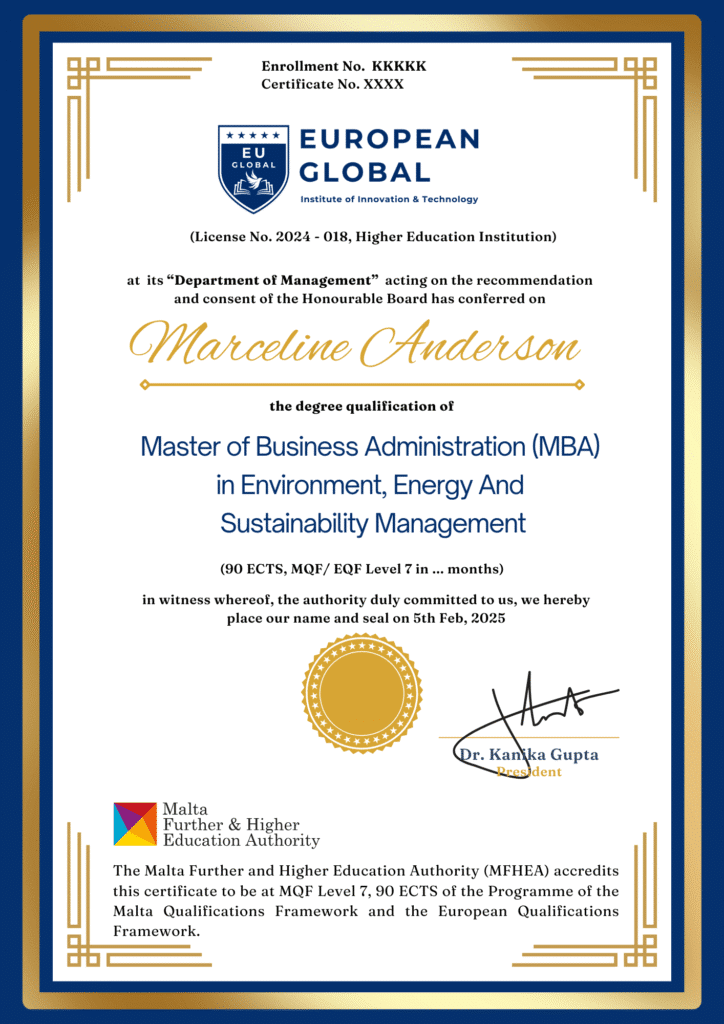

DR CHIZOBA NWABUNIKE FACULTY MEMBER DOCENTI GOBAL BUSINESS SCHOOL
Dr. Chizoba Nwabunike is a passionate and accomplished marketing and business leader with over 20 years of experience working across top brands in FMCG, betting, telecom, and fintech. Known for her creativity and strategic thinking, she has successfully led brand turnarounds and driven strong business growth. She holds a PhD in Business Administration, an MSc in Innovation Marketing, and an Executive MBA. As Managing Director of Rue Sage Media and Osis Foods Limited, and a Fellow of CIM, she blends deep academic knowledge with real-world leadership and executional excellence.
COURSE CONTENT (CORE MODULES 30 ECTS)
Module 1: Management and Organisational Dynamics (3 ECTS, 75 Hours)
This module provides an in-depth exploration of management principles and the complexities of organizational dynamics in today’s business landscape. It highlights the importance of effective management in shaping organizational culture, behaviour, and performance.
By combining established theoretical frameworks with practical applications, learners will develop the ability to analyze and influence both internal and external factors that impact organizations.
The module is delivered under the curriculum of Docenti Global Business School, fully aligned with European Degree standards and WES recognition. As part of the online programme, it offers flexibility while ensuring global relevance and academic credibility.
Module 2: Managing Financial Resources and Performance (3 ECTS, 75 Hours)
This module provides a comprehensive study of financial reporting, managerial and cost accounting, and valuation practices across organizations of different sizes and sectors. Students will gain the ability to apply accounting theories, tools, and practices within management and leadership contexts, enabling them to support effective decision-making.
Emphasis is placed on interpreting financial statements and applying financial standards, ratios, and analytical techniques to evaluate the performance of for-profit, non-profit, and public organizations. Learners will also develop expertise in risk assessment, forecasting, valuation, and financial reporting.
Professional growth is supported through interactive engagement with case studies, exercises, and learning resources, ensuring students can confidently analyze and present financial information.
The module is offered under the curriculum of Docenti Global Business School, aligned with European Degree standards and WES accreditation. As part of the online MBA, it delivers a globally recognized and flexible qualification with strong academic and professional value.
Module 3: Strategic and Digital Marketing (3 ECTS, 75 Hours)
In an era defined by rapid technological change, organizations must adapt their marketing strategies to remain competitive and achieve long-term growth. This module equips students with advanced skills to navigate the complexities of digital marketing and apply innovative approaches to strengthen business performance.
Learners will explore key frameworks, tools, and best practices in digital marketing, with emphasis on strategic decision-making in a digital-first world. The course highlights how marketing strategies integrate seamlessly with overall business objectives and how data-driven insights can enhance decision-making, customer engagement, and organizational success.
By combining theory with applied learning, students will gain the ability to design, implement, and evaluate effective marketing strategies that leverage digital platforms and emerging technologies.
This module is delivered under the Docenti Global Business School curriculum, aligned with European Degree standards and recognized by WES. As part of the online MBA, it ensures both global relevance and academic rigor.
Module 4: Project and Operations Management (3 ECTS, 75 Hours)
This module introduces students to the principles and practices of project and operations management, focusing on how organizations can efficiently manage processes and initiatives to achieve strategic objectives. It provides both theoretical insights and practical tools for managing complex projects and optimizing operations across different industries.
Key areas of study include project management methodologies, operations strategy, process improvement, quality management, and elements of supply chain coordination. Students will learn how to plan, execute, and monitor projects to ensure delivery within scope, time, and budget, while also gaining skills to enhance operational performance and customer satisfaction.
The module emphasizes the integration of operational capabilities with organizational strategy, enabling learners to drive productivity, ensure quality standards, and support long-term business success.
Delivered under the curriculum of Docenti Global Business School, this module adheres to European Degree standards and carries WES recognition, ensuring a flexible, globally relevant, and academically rigorous qualification.
Module 5: Financial Markets & Valuation (3 ECTS, 75 Hours)
This module introduces students to the critical financial challenges that leaders face at the board level and equips them with the tools to collaborate effectively with finance and accounting professionals. Learners will develop a strong foundation in corporate finance and valuation, gaining the ability to analyze, interpret, and respond to complex financial scenarios.
Topics covered include financial markets, valuation methods, and key issues relevant to both private and public sector organizations, all presented through a global lens. By the end of the module, students will be able to apply financial theory and analytical techniques to support strategic decision-making in diverse business contexts.
Delivered as part of the Docenti Global Business School curriculum, this module adheres to European Degree standards and carries WES recognition. It ensures students gain a globally recognized and academically rigorous qualification that is directly applicable to professional practice.
Module 6: Strategic Decision Making – Dealing with Business Complexity (3 ECTS, 75 Hours)
This module provides students with a deep understanding of organizational strategies and the managerial responsibilities required to execute them effectively. Emphasis is placed on consistency, commitment, and adaptability when dealing with complex and dynamic business environments.
Learners will examine the challenges organizations face in securing resources, building capabilities, and attracting customers in competitive markets. The module also explores how strategic choices can create long-term advantages, using real-world examples and case study analysis to reinforce learning.
By engaging with practical scenarios, students are encouraged to reflect critically on strategic principles, refine their decision-making skills, and apply innovative solutions to complex organizational problems.
Delivered under the Docenti Global Business School curriculum, this module adheres to European Degree standards and carries WES recognition, ensuring a qualification that is academically rigorous and globally applicable.
Module 7: Economics for Decision-Making (3 ECTS, 75 Hours)
This module equips students with a strong grounding in economic principles and analytical frameworks that are critical for effective business decision-making. Learners will study both microeconomic and macroeconomic concepts, gaining the ability to evaluate market dynamics, assess policy impacts, and apply economic reasoning to solve practical business challenges.
The course emphasizes the interpretation of complex economic data and the use of analytical tools to guide strategic choices. By the end of the module, students will be able to identify risks, forecast trends, and design strategies that improve organizational performance in a global economic context.
Delivered under the Docenti Global Business School curriculum, this module is WES-recognized and structured in accordance with European Degree standards, ensuring both academic rigor and international relevance.
Module 8: Ethical Leadership and Governance (3 ECTS, 75 Hours)
This module provides an in-depth study of ethical leadership and governance in modern business environments. Students will explore the responsibilities of leaders in upholding integrity, the role of governance structures in supporting ethical practices, and the frameworks that enable sound decision-making across organizations.
Through a combination of case studies, theoretical perspectives, and practical applications, learners will strengthen their ability to think critically, lead responsibly, and apply governance standards in complex and changing contexts. The focus is on cultivating leadership qualities that promote trust, accountability, and long-term sustainability.
Offered under the Docenti Global Business School curriculum, this module is WES-recognized and adheres to European Degree standards, ensuring that graduates gain an academically rigorous and globally respected qualification.
Module 9: Corporate Sustainability and Leadership (3 ECTS, 75 Hours)
This module explores the integration of sustainability principles with leadership practices that drive long-term business success. Students will examine how environmental responsibility, social equity, and economic performance intersect, and the crucial role leaders play in embedding sustainability into organizational culture.
Learners will engage with key theories, models, and practical case studies to understand how effective leadership supports global sustainability goals. Topics include climate change, resource management, and social responsibility, with emphasis on strategies that balance profitability with ethical and sustainable practices.
Delivered under the Docenti Global Business School curriculum, this module is aligned with European Degree standards and recognized by WES, ensuring academic rigor and global relevance.
Module 10: Business Communication for Competitive Advantage (3 ECTS, 75 Hours)
This module highlights the critical importance of effective communication in today’s interconnected business world. Students will develop advanced oral, written, and interpersonal communication skills tailored to professional and cross-cultural contexts, enabling them to thrive in leadership, collaboration, and strategic decision-making roles.
Through a blend of theoretical perspectives and real-world case studies, learners will explore how clear and persuasive communication can strengthen organizational performance and individual career success. The course also emphasizes the use of digital platforms and modern communication tools to enhance professional interactions in global business environments.
By the end of the module, students will be able to craft impactful messages, manage cross-cultural exchanges, and apply communication strategies that build trust and influence.
Delivered under the Docenti Global Business School curriculum, this module is WES-recognized and aligned with European Degree standards, ensuring academic rigor and international credibility.
COURSE CONTENT (ELECTIVE MODULES 30 ECTS)
Module 1: Fundamentals of Sustainability (6 ECTS, 150 Hours)
Sustainability has become a central concern in the modern world, as human activities increasingly shape and strain natural systems that underpin economic stability, social progress, mental well-being, and cultural values. This course introduces MBA students to the essential principles of sustainability, providing the theoretical and practical foundations necessary to address today’s pressing challenges.
Throughout the module, learners will analyze the connections between sustainable practices, business resilience, corporate growth, and ethical responsibility. The curriculum highlights how environmental issues are inseparable from social concerns, emphasizing the urgency of integrated solutions. Students will also examine the significance of global collaboration and explore major international development programs designed to foster long-term sustainability.
Module 2: Environmental Science and Energy Transition (6 ECTS, 150 Hours)
The global shift in energy systems is reshaping how societies produce and consume power. This module equips Master’s students with a deep understanding of core principles in energy science, while exploring the transition from fossil fuels to cleaner alternatives. The focus is on both renewable and non-renewable energy technologies, with special attention to sustainable innovations such as solar and wind power.
Learners will investigate the physical processes driving energy systems, including the importance of energy storage technologies and grid management in achieving stability and efficiency. In addition, the course explores the complex challenges of lowering carbon emissions through diverse energy transition pathways, preparing students to critically evaluate and apply solutions for a sustainable future.
Module 3: Environmental Management in Organisations (6 ECTS, 150 Hours)
The rise of environmental awareness and strict regulations has made it essential for companies to measure, manage, and report their ecological impact. This course provides MBA students with the knowledge and practical skills to operate effectively in the field of environmental management within organisational settings.
Alongside exploring the theoretical foundations, students will examine international standards such as ISO 14001 and EMAS (Eco-Management and Audit Scheme), as well as other key frameworks. Using case studies and real-world applications, the module demonstrates how these standards are implemented across different sectors, showcasing best practices while also addressing common challenges.
A central focus is the critical evaluation of Environmental Management Systems (EMS). Learners will analyze the advantages and drawbacks of EMS adoption, considering strategic, operational, and financial implications. Core themes include compliance, risk management, stakeholder engagement, and competitive positioning. By completion, students will be prepared to assess the feasibility and potential benefits of EMS for organisations of varying scales and industries.
Module 4: Advanced Principles of Net Zero (6 ECTS, 150 Hours)
Following COP26, the pursuit of Net Zero has emerged as a central priority in global climate policy, with many governments now adopting legally binding commitments. This advanced MBA course is designed to give students a comprehensive understanding of the Net Zero framework, clarifying its differences from carbon neutrality and underscoring the urgency behind the Net Zero agenda.
The module’s core aim is to develop specialised knowledge and analytical skills that enable learners to design and implement Net Zero strategies across diverse industries. Students will build expertise in Greenhouse Gas (GHG) Accounting, examine the role of science-based targets, and critically assess how businesses and societies adapt to climate change. Attention will also be given to the practical challenges and barriers organisations may encounter in the transition to a Net Zero future.
Module 5: Government and Environmental Policy (6 ECTS, 150 Hours)
With environmental and social crises intensifying, the influence of law, policy, and governance in shaping effective solutions has never been more crucial. This module offers students an in-depth understanding of how governments, businesses, and civil society collaborate to tackle climate change and sustainability challenges.
The course examines major legislation and guiding principles of environmental policy, alongside the ethical dimensions of international agreements. Learners will explore carbon budget allocation, the application of economic and regulatory instruments, and the strategic use of suasion in policy design.
Key global actors such as the United Nations and the Conferences of the Parties (COPs) will be analyzed, with emphasis on their roles in advancing climate action. The module also highlights the importance of governance and ethics in environmental decision-making and investigates alternative indicators to GDP as measures of sustainable progress.
COURSE CONTENT (RESEARCH & INNOVATION MODULES)
Module 1: Innovation Management and Design Thinking for Entrepreneurs (6 ECTS, 150 Hours)
Entrepreneurial success increasingly depends on the ability to manage innovation and apply design thinking strategically. This module equips MBA students with the essential knowledge and practical tools to generate, evaluate, and bring new ideas to market. Learners will study the principles of innovation management while applying design thinking methodologies to address complex business challenges.
The course blends theoretical insights with hands-on practice, encouraging a creative, experimental, and customer-focused mindset. Through case studies and project-based learning, students will develop the capacity to lead innovation initiatives and deliver sustainable value within entrepreneurial settings.
Module 2: Data-Driven Research and Analytical Insights (6 ECTS, 150 Hours)
Effective decision-making in business relies on the ability to design, execute, and interpret research with accuracy and depth. This module introduces MBA students to the core principles and techniques of research design, providing a foundation for applying data-driven insights across multiple disciplines.
Learners will explore how to formulate strong research questions, apply suitable data collection methods, and understand sampling strategies. The course also develops proficiency in both qualitative and quantitative analysis, equipping students to interpret findings critically.
Beyond technical skills, the module highlights the importance of ethical and transparent research practices, ensuring accountability and credibility. Students will gain hands-on experience in constructing research proposals, conducting literature reviews, and presenting results with clarity and precision to academic, professional, and business audiences.
Module 3: Capstone Consulting Project (18 ECTS, 450 Hours)
Serving as the culminating experience of the MBA programme, the Capstone Consulting Project enables students to apply and integrate the knowledge and skills developed across all modules of study. Working individually or in teams, participants will tackle real-world business challenges presented by partner organisations, simulating the dynamics of professional consulting practice.
This module provides the opportunity to undertake a comprehensive consulting assignment, resulting in strategic recommendations and actionable solutions to complex business problems. Emphasis is placed on critical thinking, problem-solving, collaboration, and professional communication, ensuring students demonstrate both academic depth and practical competence.
Through this hands-on engagement, learners will showcase their ability to deliver measurable value to organisations while further developing their consulting expertise and leadership skills. In on-campus delivery, the project may also be undertaken in conjunction with an internship placement, enhancing professional exposure and applied learning.
Accreditation and Recognition


